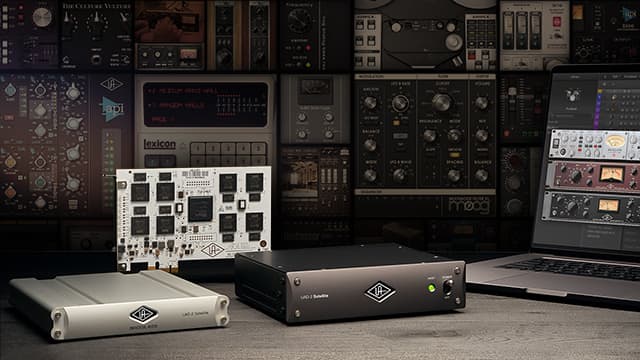
UA Blog
Legendary Mix Engineer Michael Brauer Talks with Universal Audio
Michael Brauer has enjoyed an illustrious 30-year music career, mixing chart-topping albums by renowned artists including Coldplay, Aretha Franklin, Bob Dylan, and The Rolling Stones. Last month he nabbed the coveted Best Engineered Album Grammy Award for his work on John Mayer’s Battle Studies
UAD-2 Powered Plug-Ins Basics & FAQ
So, what exactly is the UAD-2 Powered Plug-Ins platform, anyway? The UAD-2 Powered Plug-Ins Platform is a range of very high-quality audio plug-ins, powered by dedicated hardware DSP accelerators (either PCIe/ExpressCard format or Firewire 400/800 format). UAD-2 plug-ins can be used in any VST, AU, or RTAS compatible audio software on Mac and PC.
Studio Acoustics & Soundproofing Basics
From better sound isolation to nuking resonant frequencies and other sonic anomalies that color what you’re hearing — rarely for the better — learn some practical tips to tune your room.
Audio Mastering Basics: Taking Your Music That Extra Step
No one will argue that digital technology has done much to empower musicians to take control over their recordings. Today’s artists are far less dependent on high-priced recording professionals, with many great-sounding projects having never even seen the inside of a recording studio.
Film Composer Hans Zimmer Scores Big with UAD Powered Plug-Ins
Hans Zimmer is one of the most prolific and compelling film composers in Hollywood. With more than 100 films and eight Academy Awards to his name, a short list of Zimmer's scores include the Pirates of the Caribbean series, Gladiator, The Lion King, The Da Vinci Code, Sherlock Holmes, The Last Samurai, Kung Fu Panda and The Dark Knight.
Using Multiband EQ to Fix Common Mix Problems
In the never-ending quest for the perfect mix, EQ is one of the oldest tools we have, and still one of the most powerful. Used in moderation, EQ can add clarity and definition to a crowded soundscape. Used with precision, it can remove offending sounds we wish we hadn’t captured. As a strategic tool, a bit of EQ can make all the difference needed to separate dueling guitars, scoop the mud from your drums or make a vocal shine.
The Origins of EMT Reverb
The creative use of ambience is a vital color in the audio engineer's palette. Learn how capturing ambience was pioneered, and how it evolved into a creative sonic tool with forward-thinking engineers and hardware innovations.
Engineer Extraordinaire: The Late Mike Shipley on Crafting Hits for Maroon 5, Alison Krauss, and More
Prior to his untimely death in 2013, Grammy-winning engineer Mike Shipley was one of the industry’s top mixers, with a hit-making career spanning over 30 years. Here, learn how Shipley used UA hardware and UAD plug-ins to sculpt hits for Allison Krauss, Maroon 5, and more.







